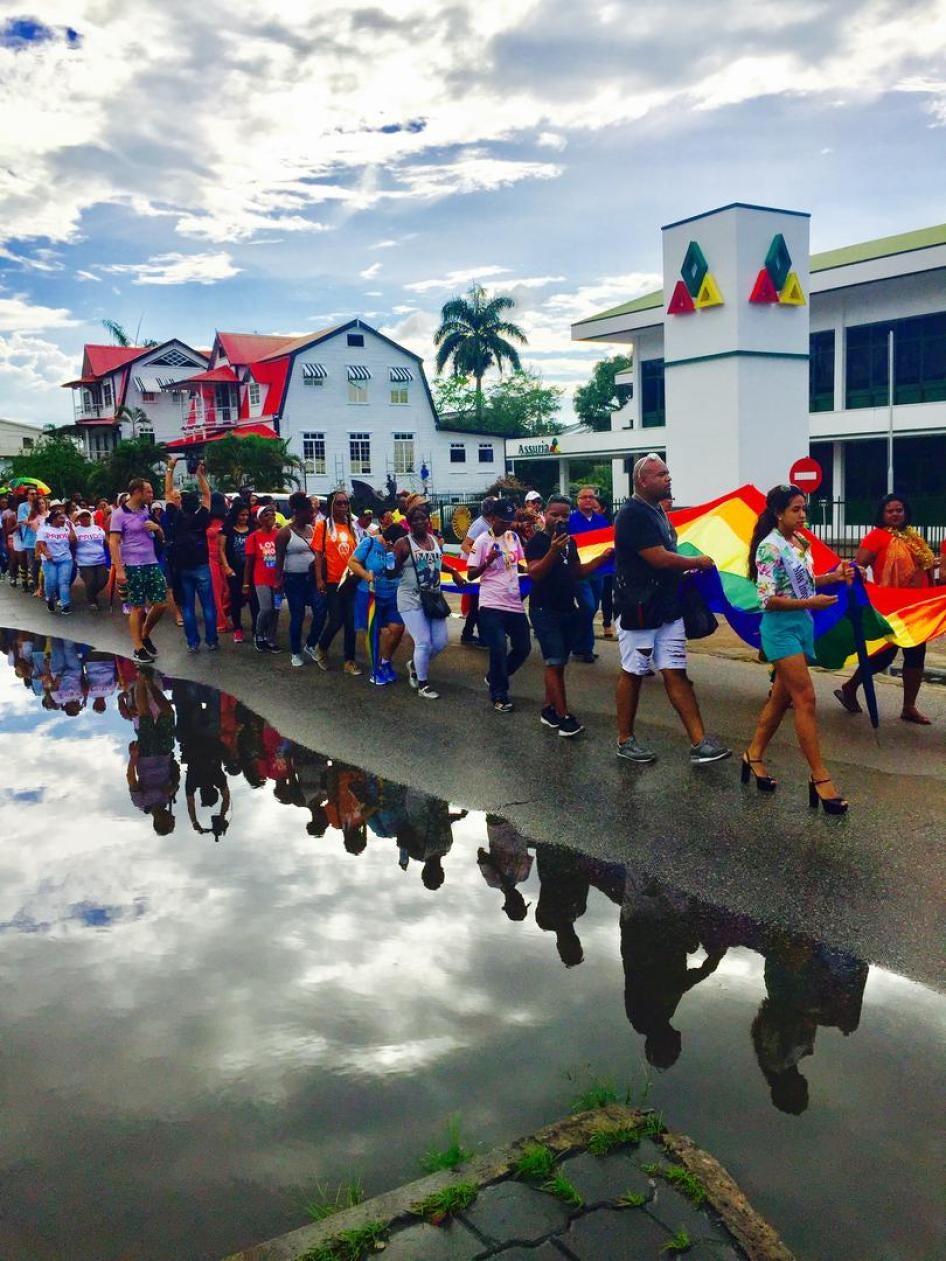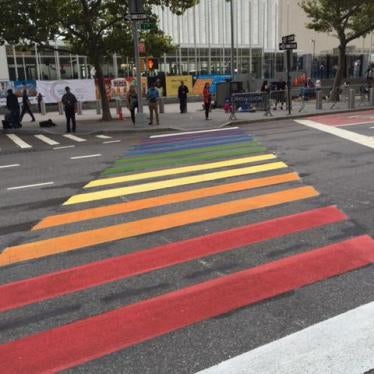On October 27, I moderated a discussion among six members of Suriname’s parliament and nongovernmental groups including PAREA, an association for gay professionals, and the LGBT Platform Suriname. The debate was among the activities for Pride Month Suriname and was organized by the international group Parliamentarians for Global Action.
The representatives of non-governmental groups put forward their requests to members of parliament. The leader of PAREA, Juan Pigot, called for reforms to the pension law, which explicitly excludes same-sex partners from benefits. The chairman of LGBT Platform Suriname, Faisel Tjon-A-Loi, pressed for legal status for same-sex partnerships, pointing out that some same-sex partners have lived together for decades but lack government protections.
Patrick Kensenhuis and Ingrid Karta-Bink, both members of parliament, initially responded hesitantly, saying that Surinamese society is not “ready” for equal rights, as much as they, as MPs, personally support the activist’s demands. They argued for an “incremental and strategic” approach to LGBT equality, starting with raising awareness.
This answer did not sit well with representatives from the many groups that attended, who pointed out that human rights are universal. “LGBT people are humans too!” one person said. Other parliament members chimed in, several making the argument that the first step should be to create public understanding of LGBT issues and tackle religious opposition: “Once we have created broad support then we can legislate,” one said.
Many fingers in the air to respond, a lively discussion ensued. One representative from a non-governmental group said: ‘There is a separation between church and state in Suriname. We don’t ask you to change the doctrine of the church. We ask you to give us our civil rights we are entitled to.’
I gave the floor to Desiree Croes, a member of parliament from Aruba who had shared her experience with legislating a registered partnership law in her country. To the Surinamese MPs she said: ‘You make it sound like what comes first, the chicken or the egg. But people need action now.’ The audience applauded.
A representative from a non-governmental group put it very clearly: ”We don’t have time to wait until the majority of society is ready to grant us our rights. Lives are at stake. Every day LGBT children are bullied at school and victim of domestic violence are depressed and try to commit suicide. Why should we wait one more day for rights that the Universal Declaration of Human Rights has attributed to us already in 1948.” Someone else said: “You are representatives of the people. We belong to the people. We are voters too.”
The debate became intense and went back and forth, but at last a tentative consensus emerged. Kensenhuis, the parliament member who is chair of PGA’s national group in Suriname, promised to meet with LGBT activists to work with them to examine their requests and put them on the political agenda. All conference participants seemed to come to a mutual understanding that it is not an “either or” proposition.
MPs can start debating legislation, while public discussions are held to inform and sensitize the general public. LGBT activists committed to sharing information with MPs to help guide legislation, while also conducting events to share their experiences, to help the public understand why equal rights and non-discrimination are of vital importance.
”We are part of you,” one of the participants concluded. “We are your sons and daughters, your brothers and sisters, colleagues and neighbors. We are here to stay. We need rights, just like everybody else.”








